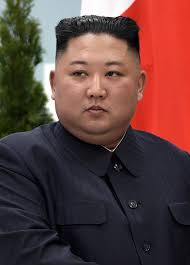Recent Developments Surrounding Kim Jong Un

Introduction
Kim Jong Un, the Supreme Leader of North Korea, remains a significant figure in global politics. His leadership style and policies have major implications for regional stability, international relations, and nuclear proliferation. As he navigates relations with the United States and other countries, understanding his actions and motivations is essential for analyzing North Korea’s future trajectory.
Recent Events
In October 2023, Kim Jong Un made headlines following a series of missile tests that showcased advancements in North Korean military technology. These tests were widely interpreted as a demonstration of strength amid ongoing tensions with the United States and South Korea. The United Nations had previously condemned these actions as violations of international sanctions aimed at curbing North Korea’s nuclear ambitions. In response, Kim’s administration justified the tests by arguing they were defensive measures against perceived threats.
Additionally, Kim has been working to strengthen ties with China and Russia, seeking closer military and economic cooperation. His recent visits to these countries have sparked discussions about a potential shift in geopolitical alliances and the implications for western nations. Observers noted that these partnerships could provide North Korea with vital resources, thereby circumventing international sanctions.
Implications for Global Relations
The developments surrounding Kim Jong Un are not just significant for North Korea but also have broader implications for Asia and beyond. The U.S. has reiterated its commitment to deterring North Korea through sanctions and military readiness. However, the increasing cooperation between North Korea, China, and Russia raises concerns among U.S. and South Korean officials, who view this as a growing regional threat.
Furthermore, the nuanced leadership style of Kim Jong Un—with a focus on both military strength and economic self-sufficiency—reflects a complex strategy. This approach has implications for diplomatic efforts aimed at denuclearization, which have stagnated in recent years. International analysts emphasize the need for a coordinated response from the U.S. and its allies to address these emerging challenges.
Conclusion
As Kim Jong Un continues to assert his authority both domestically and internationally, monitoring North Korea’s actions remains crucial. The recent missile tests and strengthening ties with China and Russia illustrate his determination to enhance North Korea’s standing on the world stage. Observers forecast that these dynamics will not only influence regional security but could also redefine global power relationships moving forward. For readers, staying informed on Kim Jong Un’s actions will provide insight into the evolving landscape of international relations involving North Korea.


